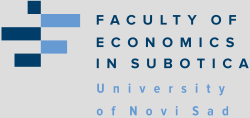The Effects of High Work Involvement on the Well-Being of It Sector Employees in the Republic of Serbia
DOI:
https://doi.org/10.46541/978-86-7233-428-9_418Keywords:
High work involvement, Well-being, Social responsibility, IT sector, Republic of SerbiaAbstract
In the modern business environment, organizations focus on strategies and concepts that are in the domain of social responsibility, with the aim of strengthening their competitive position on the market. This paper deals with human resource management concepts based on new models, such as high employee involvement and employee well-being. The main goal of this research was to examine the relationship between high work involvement and employee well-being. The main research question relates to determining the effect that high work involvement causes on the well-being of employees. The theoretical and empirical part of the research is the methodology of the work. As part of the theoretical part of the research, an overview of the author's previous research on the topic of high work involvement and employee well-being was carried out. Empirical research was conducted on a sample of 100 employees (managers and professional workers) in organizations operating within the IT sector in the Republic of Serbia. The collection of the sample lasted during January 2024 through an electronic questionnaire. Using the PLS-SEM method within the Smart PLS software, the proposed relationship was tested. The results of the research indicated that there is a direct positive effect of high work involvement on the well-being of employees. Employees who are involved in making decisions, solving problems and proposing new ideas will have more developed mental, psychological and emotional aspects of life.


